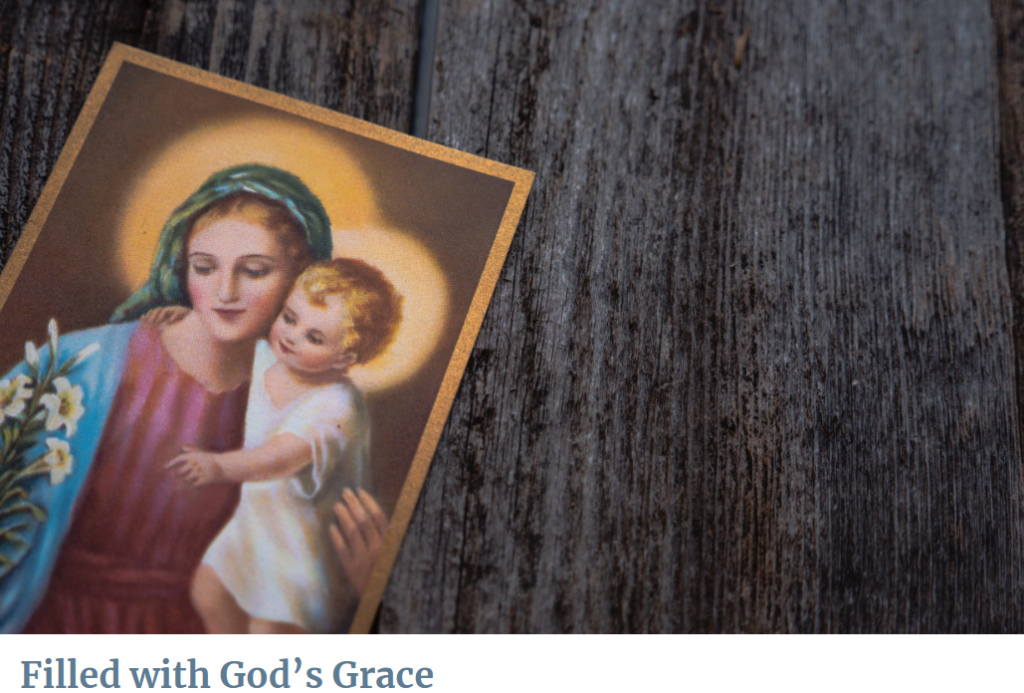
//Clergy Coaching Network//

416 N 2nd St, Albemarle NC 28001 | (704) 982-2910

//Clergy Coaching Network//

//Clergy Coaching Network//

//Clergy Coaching Network//

In this summary of the Catechism’s teaching on holiness, justification, and merit, we briefly consider the work of God’s grace and mercy. His grace moves us from sin and toward him, making us his sons and daughters and bringing us into the very life of the Trinity. This gift of grace invites us to respond to his promptings and invitations freely. Finally, God offers “all the graces needed to attain eternal life.” Today’s readings are Catechism paragraphs 2017-2029.
Click on link: https://youtu.be/thnwUFdtSAA?si=DVVzpWlHmaR3dmPY

God’s free initiative demands man’s free response. We continue our discussion of grace today by examining how grace and our free will interact in our lives. Fr. Mike also explains the purpose of sacramental graces and how the expression of these graces looks different across the Body of Christ. Today’s readings are Catechism paragraphs 2002-2005.
Click on link: https://youtu.be/64MY5p9Jbiw?si=WMeNNBePyNPUqX_X

What does it mean to be justified? The Catechism teaches us today about the grace of the Holy Spirit and its power to justify us. Fr. Mike explains how justification detaches us from sin and purifies our hearts. We learn that justification brings about a marvelous inward transformation that bears witness to God’s great mercy. Today’s readings are Catechism paragraphs 1987-1995.
Click on link: https://youtu.be/7wI8VAchhG8?si=mX_GMDlMhGBgmdHH


To be replenished is to be reminded of what is true, of the values that tether us. This is not just someone saying, “You’ll be OK.” To be replenished is to know, at our core, that we are home and we are safe. Now we have something to draw on. Which means we have something to give. This sanctuary is not just for solace, but also indispensable as a deterrent. In other words, we build immunity: to not be as easily susceptible to fear, or at the mercy of every threat. We can do this because there are two gentle hands of grace that hold us, no matter what. Let us honor that capacity (inner core), fueled by sufficiency and not scarcity. We need to honor our capacity for mindfulness. To embrace now and the sacrament of the present moment.
—from the book Stand Still: Finding Balance When the World Turns Upside Down,
by Terry Hershey, page 32

Mary knew who she was to the very depth of her being. She said yes to God and because of that, the world was turned upside down, or perhaps was finally righted. Mary’s is her testimony to the way God intended the world to be from the beginning. Because she said yes, a new creation would be revealed to the world. This woman at the heart of the Advent season is a remarkable role model for us. We might not realize it, but we, too, are filled with God’s grace, even if that grace is clouded and obscured by sin. Mary may have been born knowing who she was, but we are given many opportunities to learn the marvelous truth that we are sons and daughters of God. At times, we mistake humility for inferiority, but in truth humility means knowing who we are, with all our strengths and weaknesses, gifts and gaps. Our job is to clear away those things that keep us from saying yes to God. If we focus only on what’s missing, we miss the beauty that’s already there. As we become more and more clear, we better reflect and magnify the Lord who has given us all that we have, made us all that we are (and can be). And here, too, we can learn from Mary. Again and again, the Gospels tell us that she treasured everything in her heart, pondering the meaning of the angel’s words—and later those of her precocious child. She must have spent long days and even sleepless nights wondering where his adult path would lead him. But through all of ponderings, she knew in her heart that she could trust the God to whom she had said yes. How do you show forth the glory of God to those around you? Pray these words with Mary: My soul magnifies the Lord, and my spirit rejoices in God my Savior. (Luke 1:46–47) We’ll never be asked to do what Mary did. Her role in salvation history was unique. But God asks us to have her openness to those things that we are called to do. Take some time even in this hectic week to reflect on your life—past, present, and future—and listen for how God is asking you to make things right in your little corner of the world.
— from the book Simple Gifts: Daily Reflections for Advent
by Diane M. Houdek
//Franciscan Media//

//Contemplative Monk//